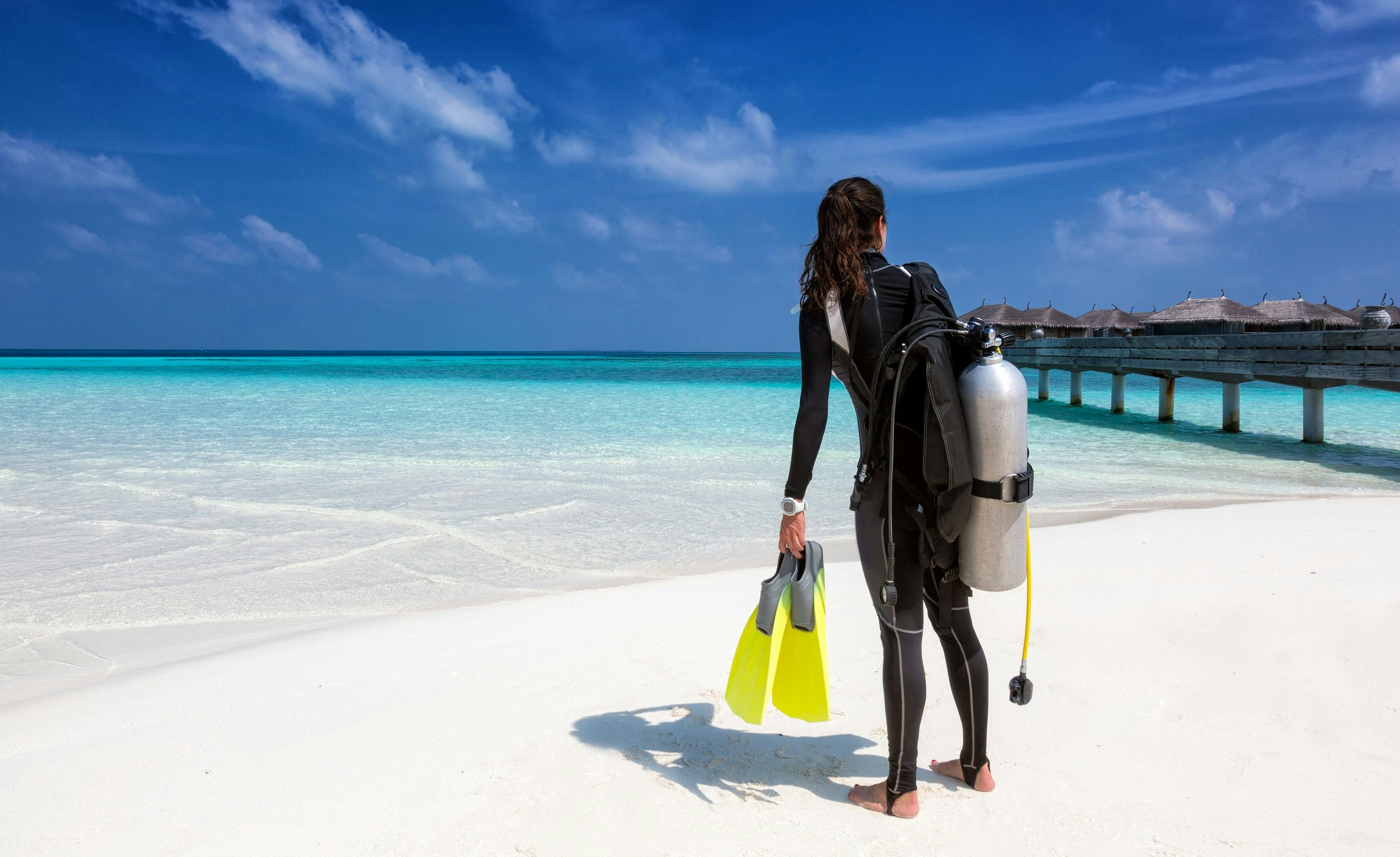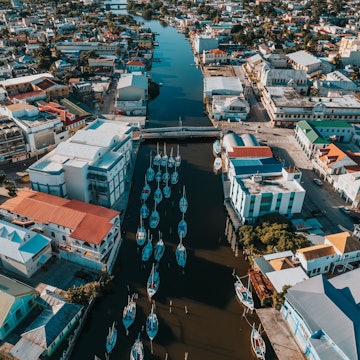

In the entire cosmos, there’s only one blue planet – ours. The oceans are home to some of the world’s most incredible wildlife including many endangered creatures threatened by rising temperatures of the sea, changing pH levels and plastic waste. It’s crucial to seek out cruelty-free sustainable scuba diving experiences that value animal welfare to preserve these remarkable species. Here are some tips to help you be a responsible diver.

Identify responsible dive operators
Whenever possible, seek sustainable diving opportunities at marine-protected nature reserves where the safety of fish is considered high priority. Sea Saba in the Caribbean takes guests to the Saba Marine Park for project-based adventure programmes such as helping maintain the coral nursery and research reef ecology.
Dive operators should offer small group excursions of fewer than ten divers and a licensed guide per, at least, every four divers. Dive sites should be selected not just based on weather conditions, but on the divers’ experience, to ensure that the impact on coral is reduced where divers are stressed or have buoyancy issues. Always listen to your guide if they alert you that you’re exhibiting dangerous behaviour, even if it’s unintentional. Dive schools should strictly follow a no-touch and no-feeding policy for marine life – even an empty shell could provide shelter for a hermit crab. Divers should be encouraged to avoid using fins as it stirs the ocean floor, which allows sand to re-settle and suffocate coral.
A dive boat that prioritises the environment will be equipped with reusable cups, water jugs, cotton towels and natural mask defoggers. Sustainably-minded dive centres will only permit divers to use Blue UV flashlights during fluorescent night dives to avoid disturbing marine life. The dive shop at Victoria House Resort and Spa in Belize only uses reef-safe products with biodegradable containers.

Consider an electric motor, or no boat at all
If the dive centre is located on an island and has a house reef, ask if any of the dive spots are accessible by swimming from the beach to avoid polluting the water with boat fuel. If the dive centre has a dock, see if it was built beyond the edge of the reef to avoid harming coral.
If a boat must be used to reach off-site dive locations, support operators that use electric boat motors. Many dive sites are in fragile ecosystems that are at-risk due to fuel-powered live-aboard dive boats, tour boats and cruise ships. When carbon dioxide from burning boat fuel dissolves into the ocean, acidification and algal blooms increase, the ocean warms and sea levels rise. Electric motors limit the negative impact on marine life by reducing fuel and noise pollution. MahaRaja Eco Dive Lodge in Raja Ampat, Indonesia equips diving boats with electric motors from Torqeedo.

Look for certification and codes of conduct
Book responsible operators: Green Fins members have pledged to a strict environmental code of conduct such as regular ocean cleanups, proper waste disposal and no-touch policies. Members are assessed and certified annually, and include Tioman Dive Centre in Malaysia and Evolution in the Philippines. Support businesses that have other eco-friendly practices such as reusing rainwater, using solar power energy and serving vegan meals.
Reef Check monitors, restores and maintains coral reefs around the world and provides EcoDive certifications to places such as Baros Maldives, which employs a resident marine biologist to protect the natural reef that surrounds the resort. Blue Flag also provides eco-labels to sustainable boating tourism operators who operate according to stringent criteria.

How to avoid greenwashing
Any eco-dive centre should be readily able to explain to guests how they protect the environment. It’s important to do your research and keep an eye out for greenwashing, where an outfit will attempt to appear more sustainable than it truly is. Outright red flags are the dive centres that promote interactive animal experiences. If they showcase photos of divers touching any sort of aquatic life, don’t use them. Avoid tours with dive centres that bait or chase sharks or whales. Remember: dive operators should never guarantee what creatures you’ll see while you’re diving.

Being responsible on the dive
It is inevitable that scuba divers will have an impact on the environment. Most of the harm comes from boat fuel, improperly-disposed plastic waste, coral destruction and fishing – all of which are fatal for the marine life that divers travel the world to witness.
Divers can adhere to an eco-standard for preserving the sea and all its inhabitants by minimising their impact on the marine environment. Take a pledge to follow planet-friendly dive policies. Respect all marine life by never touching, harassing, feeding, or killing any sea creature. Be sure to never hold, stand on or kick coral, and don't let your dive gear touch the coral either.
Use all-natural mineral biodegradable sunscreen to avoid putting harmful chemicals such as oxybenzone into the water, which can cause viral infections for corals. Buy biodegradable toiletries and stay at dive resorts that use septic systems that keep harmful wastewater out of the ocean.

Cigarettes are one of the top polluters of the sea, and a responsible diver wouldn't dream of putting one in the ocean. Never throw organic waste in the water either. Fruit peels are biodegradable, but they’re not natural sources of food for marine life and can disrupt the ecosystem.
Marine life should never be removed from the ocean. Don’t take or purchase anything that came from the sea including seashells or coral. You should, however, remove any trash you see in the ocean during your dive.
These eco-efforts help conserve the ocean and its many species, which will continue to allow divers to enjoy ethical experiences in the underwater world. Divers act as ambassadors of the sea and should take responsibility for the impact they have on the world’s oceans.
You might also like:
10 of the world's best learn-to-dive destinations
How to have a sustainable visit to the Great Barrier Reef
I'm a Lonely Planet writer and I gave up flying. Here's what happened














